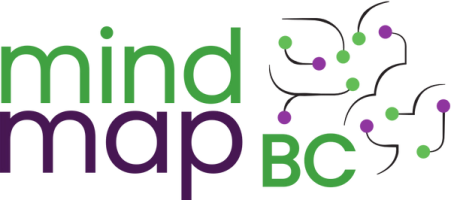Summary
 Social groups and networking
Social groups and networking Individual counselling
Support groups
Sliding Scale Available
LGBQ+ Affirming
Trans Affirming
Online resource
Welcome! My name is fir moon and I am honoured to offer support to you on your journey. I am a queer woman of colour, a survivor, an artist, a healer. I have been bringing all of these parts of myself to my community-based mental health and trauma work for just about a decade now. In this time, it has always been my priority to uplift and empower my communities; 2SLGBTQ+, IBPOC, survivors of systemic and interpersonal trauma, people with diverse abilities.
Through my work with these communities, I noticed that the power structures at play in traditional counselling did not resonate with me, and so over time, I sought out ways to decolonize my work by centering each individual as the knower, the leader in their own healing path.
A combination of ongoing experiential and formal learning transformed my approach into what I call, 'intuitive healing'. This is an ever-evolving decolonial approach to trauma recovery, mental health, and personal development. Intuitive healing places you as the expert of your own experiences and healing. My role is to facilitate, support, and empower you to reconnect with your inner places of knowing.
Intuitive healing blends ancient forms of embodiment and healing practices with current approaches in attachment-based trauma recovery. Intuitive healing is informed by buddhist psychology, trauma-conscious, strengths-based, somatic experiencing, art, narrative, intersectional feminist therapies, as well as yoga, ayurveda, elemental wisdom, mindfulness, and wicca.
What do intuitive healing sessions look like? Together, we will explore bodywork, creative expression and witnessing, holistic psychoeducation, and community connections, based on your interests and what calls you. Flexible scheduling and sliding scale available. Please note that I do not provide registered counselling services. Get in touch for a free 30 minute meet and greet to learn more about intuitive healing!
Want to learn more about this service’s work with Two-Spirit, trans, LGBQ+ people?
We invite all service providers listed on MindMapBC to answer the following questions. These questions were developed in collaboration with community members, researchers, and mental health and other service providers. They're intended to help us understand what a service provider or organization is doing to affirm and support sexual and gender diverse service users.
See below for responses for this listing.
Want to learn more about our screening questions and filters?
Are the forms used in your practice inclusive of various sexual orientations and gender identities (e.g., opportunities to fill in pronouns, etc.)?
—Yes
Do you collect and use preferred names (rather than legal names) for all communications?
—Yes
Do you and your colleagues ask about pronouns and use them appropriately?
—Yes
Are you and your colleagues aware of what specific barriers may exist for trans individuals accessing your services?
—Yes
Yes, and I recognize as a cisgendered queer that the unlearning is ongoing. It is important to me that I continue to deepen my understanding of the systemic barriers faced by gender diverse and Trans folks.
Are you and your colleagues aware of what specific barriers may exist for Two-Spirit individuals accessing your services?
—Yes
Yes, and as a settler on unceded land, I feel it is my responsibility to continue to unlearn, decolonize, and create safer spaces for Two-Spirit individuals to thrive.
Do you offer Indigenous 2S/LGBTQ+ specific resources, for example Indigenous Elders or Knowledge Keepers?
—Yes
Yes, and I can see this as an area of growth (further resources) for my practice.
Are you and your colleagues comfortable asking relevant questions about gender identity and sexual orientation?
—Yes
Are you and your colleagues aware of what specific barriers may exist for LGBQ individuals accessing your services?
—Yes
Can you and your colleagues distinguish gender/identity dysphoria/distress from mental health conditions?
—Yes
Do you and your colleagues have experience working with people who identify as living with a disability or chronic illness? Please tell us more about your experience and any training you have received. (For example, do you have experience working with people with diverse physical or cognitive abilities, or those who are living with specific chronic illness(es)?
—Yes
I have formal training in supporting folks with diverse abilities and dis/abilites. Moreover, the first 5 years of my work in community-based mental health focused on adults and youth with developmental dis/abilties including CP, ASD, FASD etc, and physical dis/abilities. Much of my growth around decolonial, anti-oppressive, and anti-racist work can be attributed to the individuals with diverse abilities who taught me these frameworks.
Does your practice have gender-neutral washrooms?
—No
At this time, I am offering virtual services.
Are there clear anti-discrimination policies that include gender identity, gender expression, and sexual orientation in your organization or practice?
—Yes
Are all individuals involved in service provision actively engaged in decolonizing their practices and/or organization? If yes, please type below what actions you and/or your organization are taking.
—Yes
I am in ongoing relationship with the land on which I live, which has led me to connect with the bands who steward this land today. I have and continue to seek out trainings led by Indigenous elders to decolonize; this year I engaged with Little Warriors (childhood sexual abuse prevention) and San'Yas. I have sought out traditional music, art, and culture of the bands whose land upon which I live. I am a strong advocate when it comes to educating and helping other settlers unlearn colonial practices and instead take up Indigenous ways of being, thinking, doing. I am always looking for what more I can learn/unlearn and how I can centre and amplify Indigenous voices.
Are all individuals involved in service provision actively engaged in anti-racist practices, policies, and systems in their care model?
—Yes
Last updated: February 24, 2022
Request changes —

